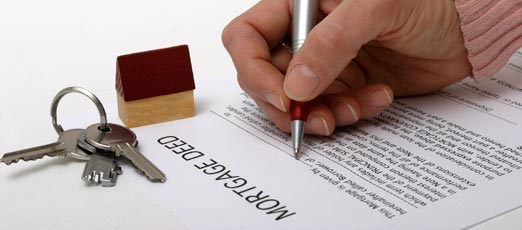Conveyancing is an integral part of the mortgage process but many consumers are unaware of the term, what it involves, or how much you should expect to pay. Here, Andy Knee, managing director at LMS, breaks down what you need to know.
Overview
 The term ‘conveyancing’ is used to describe the legal processes behind the buying or selling of a house. Although homeowners are technically able to undertake conveyancing themselves, we would always advise consumers to seek professional legal assistance to ensure the process is conducted as efficiently and effectively as possible.
The term ‘conveyancing’ is used to describe the legal processes behind the buying or selling of a house. Although homeowners are technically able to undertake conveyancing themselves, we would always advise consumers to seek professional legal assistance to ensure the process is conducted as efficiently and effectively as possible.
There is a considerable amount of legal jargon and procedure involved, but it is the job of the appointed law firm to try to communicate an accurate picture of the property that you are buying or selling and to keep you up to date at every stage of the process. Conveyancing can be a lengthy and complicated process, and this should be taken into consideration when planning ahead, for example, when selecting a date to move in.
When does conveyancing occur?
Once an offer has been successful, the lawyers representing both sides – the seller and the buyer – will exchange details and begin the conveyancing process.
There are several things to consider when selecting your law firm:
1) Choose someone that you feel comfortable asking questions. It is essential that you form a good relationship with your conveyance, as good communication between all parties is key to the process running smoothly.
2) Choose someone you trust to be reliable; you do not want to be in a situation where you cannot get hold of your solicitor, so select a firm that has a good reputation or comes recommended.
3) Choose a firm that specialises in conveyancing. This way you can ensure that they have extensive knowledge and experience of the process and that they will not be out of the office at court.
How much does conveyancing cost?
The fees involved can vary immensely, depending on the law firm selected, the legal work involved and the price of the property you are buying, selling or remortgaging.
Research suggests that consumers should expect to pay anywhere between £250 and £1,300 +VAT and disbursements and that the amount charged can vary significantly depending on where the property, or more accurately, the lawyer, is based. There is certainly something of a ‘postcode lottery’ when it comes to fees.
Quotes are typically made up of two components: 1) the basic fee, and 2) disbursements. The basic fee covers the cost of the conveyancer’s time and varies depending on the method by which they choose to charge people – i.e. a fixed-fee or on an hourly basis.
In more complex cases, for example: leasehold properties, the basic fee will be higher as more paperwork is involved. The second part of the quote – the disbursements – are costs incurred by the conveyancer that are passed on to you. These include things such as land registration fee, various forms of searches and in many cases stamp duty.
How long does conveyancing typically take?
There are a number of parties involved in the conveyancing process and this in turn means there are several opportunities for delay. Customers can expect conveyancing to take anywhere between eight and twelve weeks although it can take much longer if someone in the chain drags their feet.
It is important not to have too many plans set in stone before instructing a solicitor, and you should bring them on board as early as possible. Many customers, especially those who have never bought a house before, are not fully aware of how complex the process of conveyancing is or how long it can take. It is very difficult for a solicitor to manage the expectations of their client if they are being unrealistic.
This gives an overview of the process, in simple terms, if you were looking to purchase a house:
Purchase instruction to exchange
Your conveyancer will begin by obtaining the contract pack from the seller’s conveyancer. Whilst awaiting a copy of your mortgage offer they will perform any necessary pre-exchange searches. They will then analyse the contract pack, results of the searches and your mortgage offer and report to you with the results, with the intention of providing the most accurate picture possible of the property you are buying.
Once you have confirmed that you understand the information they have presented to you and that you are happy to proceed, you can sign the final contract and return it to your conveyancer together with your deposit. The conveyancer can then exchange contracts with the seller’s conveyancer and send over the deposit payment.
Exchange to completion
Your conveyancer will prepare the completion statement and send this to you. They will also carry out final searches and request funds from your lender for the working day before completion. They will then prepare the transfer deed and send this to the seller’s conveyancer to ensure that the seller has executed this document prior to completion.
Your conveyancer will then transfer the payment to the seller’s conveyancer, notify you of completion and request that you collect keys from the estate agent or from the seller direct. Upon receipt of any title deeds, transfer deeds and proof of any outstanding mortgages, your conveyancer will send your transfer deed and any applicable stamp duty to the Stamping Office. They will also send any relevant documents to the Land Registry to register your ownership of the property. Upon receiving the title deeds from the Land Registry, they will forward these on to your mortgage lender if they have provided finance or if you are a cash buyer.
Your role
Your appointed lawyer should guide you through the whole process, ensuring that you are not only aware of what you should be doing but also what they are doing on your behalf.
Conveyancing now
A lot has changed over the past five to ten years. The majority of conveyancing firms are almost unrecognisable, a large number of whom are now ‘paperless’. Technology has played a huge part in the evolution of conveyancing as most of the process can now take place online, with communication primarily occurring by email or on the phone as opposed to face-to-face or by post. Improved communication helps to reduce the time spent on a number of stages, as well as significantly reducing risks for you as the customer, and the costs you incur.
Although the appointed lawyer should keep you informed at all times, LMS has created an online ‘case tracker’ which allows you to obtain up to the minute information about the progress of your case from the solicitors on our panel.
Conveyancing is the glue that holds the house buying process together. It is therefore essential that you are happy with your appointed representative and that you trust them to do the best job possible.




